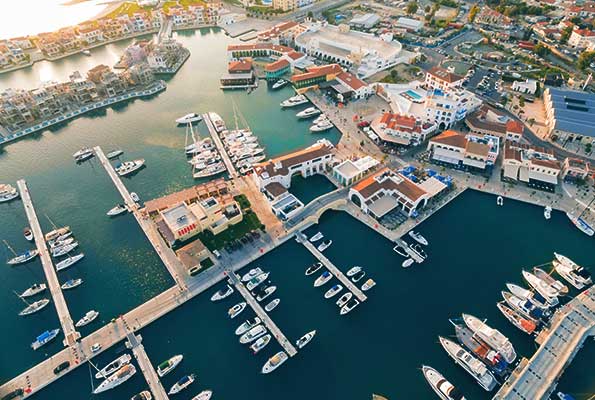Cyprus has been in turmoil since 1974 when Turkey invaded the island’s northern part in retaliation for a military coup that the Greek government had supported.
The island was essentially divided, with a Turkish Cypriot administration controlling the northern third and the internationally recognized Greek Cypriot government controlling the southern two-thirds.
United Nations soldiers patrol the “Green Line” that separates the two parts, and the reunification process is moving slowly.
Cyprus has effectively transitioned from a predominantly agricultural economy to one based on services, including a sizable tourism industry and light manufacturing.
It has also recently grown into an important financial centre, particularly for investors from Russia and Eastern Europe.
Understanding The Full Picture
The resilience of Cyprus’ economy in the face of hardship has repeatedly astounded observers, highlighting the country’s strength as a small island state. Despite several shocks during the past ten years, the nation has maintained its course, increased its diversification, and attracted new investment, earning a reputation as one of the most resilient European Union economies.
Despite its modest stature, Cyprus has become synonymous with tenacity and punches above its weight. The nation has consistently demonstrated its ability to recover after a decade of substantial economic shocks. After the banking crisis in 2013, the economy quickly rebounded, regaining an investment-grade status in 2018 and posting annual average real GDP growth of 5.4% in 2016–19.
In the wake of the global epidemic in 2020, the economy likewise soon recovered. The data paint an amazing picture, with real GDP growth falling to -5.0% in 2020 before soaring to 5.5% in 2021. Banks have recently merged, increased, and diversified their capital bases while reducing non-performing loans by more than 80%.
In addition, the government paid off its debt to the IMF five years early and overhauled its public finances, bringing debt back to manageable levels. These successes provided the government with the financial breathing room it needed to provide ongoing assistance to pandemic-affected businesses.
Significant financial support for the EU’s green and digital transformation agenda has given digitalization, liberalization, and green reforms a new lease of life. New incentives are still being introduced to draw in a wide range of high-quality foreign investment. With this new approach, the economy will become even more competitive and can benefit from the highly educated workforce in the eurozone.
Inflation in the country has now reached its lowest level in 25 months in June 2023 and stood at 1.9% on an annual basis.
According to the Statistical Service, the Consumer Price Index (CPI) and thus inflation decreased in June 2023 by 0.34 points to 114.38 points, compared to 114.72 points in May 2023.
Inflation in June 2023 increased by 1.9% compared to June 2022.
Major Sectors
Services made for 83.4% of the gross value added in Cyprus’ economy in 2021, followed by industry with 8.5%, construction with 6.1%, and agriculture, forestry, and fisheries with 2.0%. The economy has become more diverse during the last two decades.
The value-added contribution of the tourism industry, when limited to accommodation and food services, has now been surpassed by professional services, communications, financial services, and real estate. Despite this, tourism continues to be one of the most significant industries, particularly due to its wider impact on retail, transportation, construction, and employment.
The growing significance of Cyprus as an international commercial hub has made diversification possible. As the nation takes advantage of its geostrategic location at the crossroads of three continents, information, and communication services have swiftly increased from a low base.
Along with administrative services, the compliance market is expanding quickly. Like many developed nations, the major industry is wholesale and retail trade, catering to the local populace and foreign tourists.
Opportunities & Challenges
The Deputy Ministry of Research, Innovation, and Digital Policy, founded in March 2020 and instrumental in hastening the digitalization of the public sector at the height of the pandemic, is providing important structural support in Cyprus’ efforts to stay on its healthy growth path.
The government has also started several projects to encourage green transition and competitiveness. These include financial incentives for the island’s developing wine industry, entrepreneurship, and building energy upgrades.
The energy sector, particularly renewable energy, interconnectivity, tourism, and headquarters, are key opportunities. Offshore natural gas discoveries, more electrical liberalization, and investments in renewable energy sources present opportunities.
Submarine power cables connecting Cyprus to the continents of Europe and Africa will present opportunities for interconnectivity. The government’s early public health initiatives to quickly limit the epidemic have improved chances for headquarters, while investment in enhancing and extending the island’s tourism offerings will continue.
This has improved the nation’s standing as a secure site in the eurozone to conduct business.


